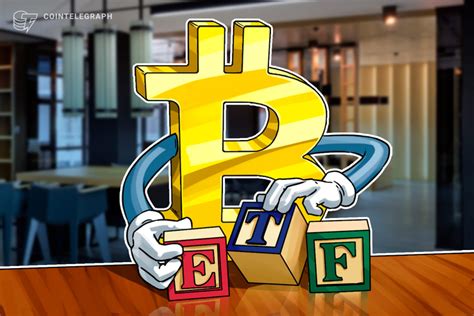Introduction
- If you are like most cryptocurrency investors, you often hear how the SEC has unfairly and repeatedly refused to approve a Bitcoin ETF
- And if you are an average cryptocurrency investor you are slightly confused because you are pretty sure the SEC already approved a Bitcoin Futures ETF
- So you are probably thinking … What’s the difference?
- If so this short post is for you. 😊
 source
source
The TLDR or short answer is…
- A Bitcoin Spot ETF allows you to buy a share of a fund which owns Bitcoin, and this right is permanent. While a Bitcoin Futures ETF allows you to own the right to buy or sell Bitcoin, at a certain price, for a limited period of time, and it’s temporary.
- Because a Bitcoin Spot is permanent, you buy it and forget it. You now indirectly own Bitcoin. Because a Bitcoin Future is temporary, you are constantly buying and selling futures, and never really own Bitcoin.
- In a simplistic way it’s like a Bitcoin Spot ETF is like owning Tesla stock, which is permanent, or but a Bitcoin Futures ETF is like owning the right to buy or sell Tesla stock, which is temporary.
Body
- This is the part of the post where I explain the fine nuances of a Bitcoin Spot ETF and a Bitcoin Futures ETF
- Both are instruments used in markets where you can’t actually buy an asset or commodity.
- This complicated invention is required because the government has decided you can’t buy Bitcoin for your retirement account.
- And since retirement accounts are owned by practically every working adult in most western countries, versus retail accounts which are owned by people with disposable income and a desire to learn about investing, the former, retirement accounts, is the largest portion of the securities investment market in the world.
- So, because so many people want a little Bitcoin in their retirement account, investment companies created ETFs to get around this rule.
- Specifically, companies invented Spot ETFs and Futures ETFs.
- So while you couldn’t buy Bitcoin for your retirement account, you could buy an ownership share of a fund which owns Bitcoin. A Bitcoin Spot ETF or Bitcoin ETF .
- A Bitcoin ETFs allow you to own shares of a fund or pool, and the fund or pool owns the Asset, which in this case is Bitcoin. While a Futures ETF allows you to own the right to buy an Asset, at a certain price, for a certain time period, and it expires. And once again, in this case, the asset is Bitcoin.
- So A Bitcoin Spot ETF allows you to buy a share of a fund which owns Bitcoin, and this right is permanent. While a Bitcoin Futures ETF allows you to own the right to buy or sell Bitcoin, at a certain price, for a limited period of time, and it’s temporary.
- Because a Bitcoin Spot is permanent, you buy it and forget it. You now indirectly own Bitcoin. Because a Bitcoin Future is temporary, you are constantly buying and selling futures, and never really own Bitcoin.
- In a simplistic way it’s like a Bitcoin Spot ETF is like owning Tesla stock, which is permanent, or but a Bitcoin Futures ETF is like owning the right to buy or sell Tesla stock, which is temporary.
- Additionally, while an ETF has one transaction fee, a futures ETF has two transaction fees or more a month. Because the instruments you buy have a short lifespan of 30-60 days, usually.
Summary:
- A Bitcoin ETF allows you to buy Bitcoin, indirectly, by owning a percentage of a Pool, which owns Bitcoin. A Bitcoin Futures ETF allows you to buy and sell financial instruments, with a limited lifespan, 30-90 days, which give you the right, to buy or sell Bitcoin, at a certain price.
- We need these two instruments, because the government doesn’t allow you to buy Bitcoin or any cryptocurrency in your retirement account.
- In my opinion a Bitcoin Futures ETF is like Stock Options for Bitcoin, and apparently the SEC agrees with me because they use the Chicago Board of Options Exchange to monitor the Bitcoin Futures ETF for price manipulation. Stock options are notorious for 80-90 percent of them expiring worthless and investors loosing all their investment.
- Thus far the record of the Bitcoin ETF has been similarly bad, for investors. And is thought to have increased Bitcoin volatility, which equates to investor losses.
- When you understand how stock options work, and how risky they are, you see the Bitcoin Futures ETF for what it is, a bitcoin options market, of a super volatile asset, with similar investor financial losses to the stock options market, where people who buy options loss money 80-90 percent of the time.
Further Reading:
- What is a Bitcoin ETF: Investopedia. link
- What are Stock options? link

Congratulations @shortsegments! You have completed the following achievement on the Hive blockchain And have been rewarded with New badge(s)
Your next target is to reach 84000 upvotes.
You can view your badges on your board and compare yourself to others in the Ranking
If you no longer want to receive notifications, reply to this comment with the word
STOPCheck out our last posts:
I always prefer to trade futures much more than spot
You are a trader, so this makes sense. Options or other derivatives are great trading vehicles. As a trader I prefer stock options over stocks. But in my retirement account, I mostly buy stocks or large funds like S&P 500.
Hi friend i love your content on hive seems you have long issue with the watchers why not try sorting that out.
Thank you for the compliment. I will contact Hivewatchers.
Thanks friend please do.